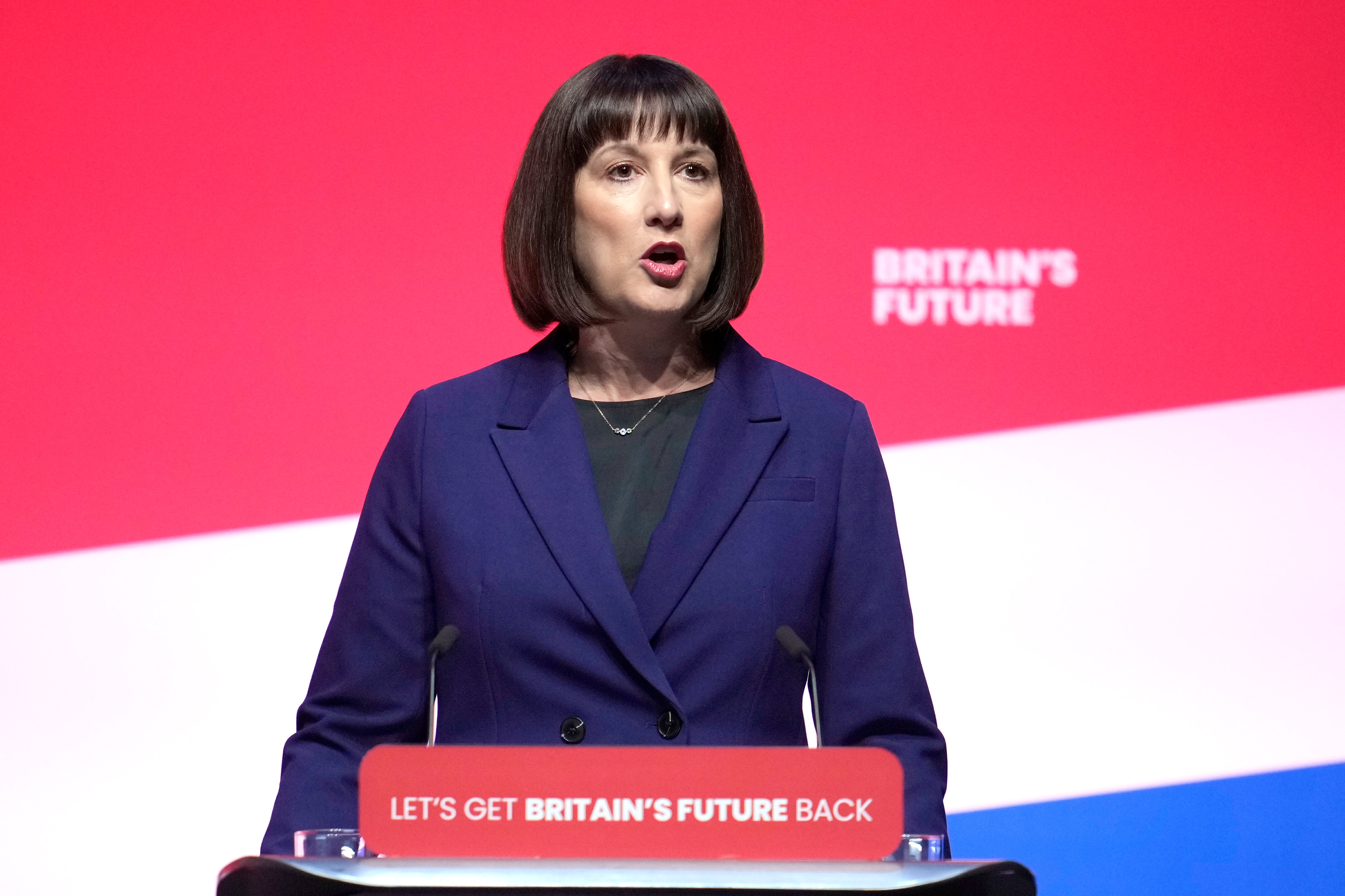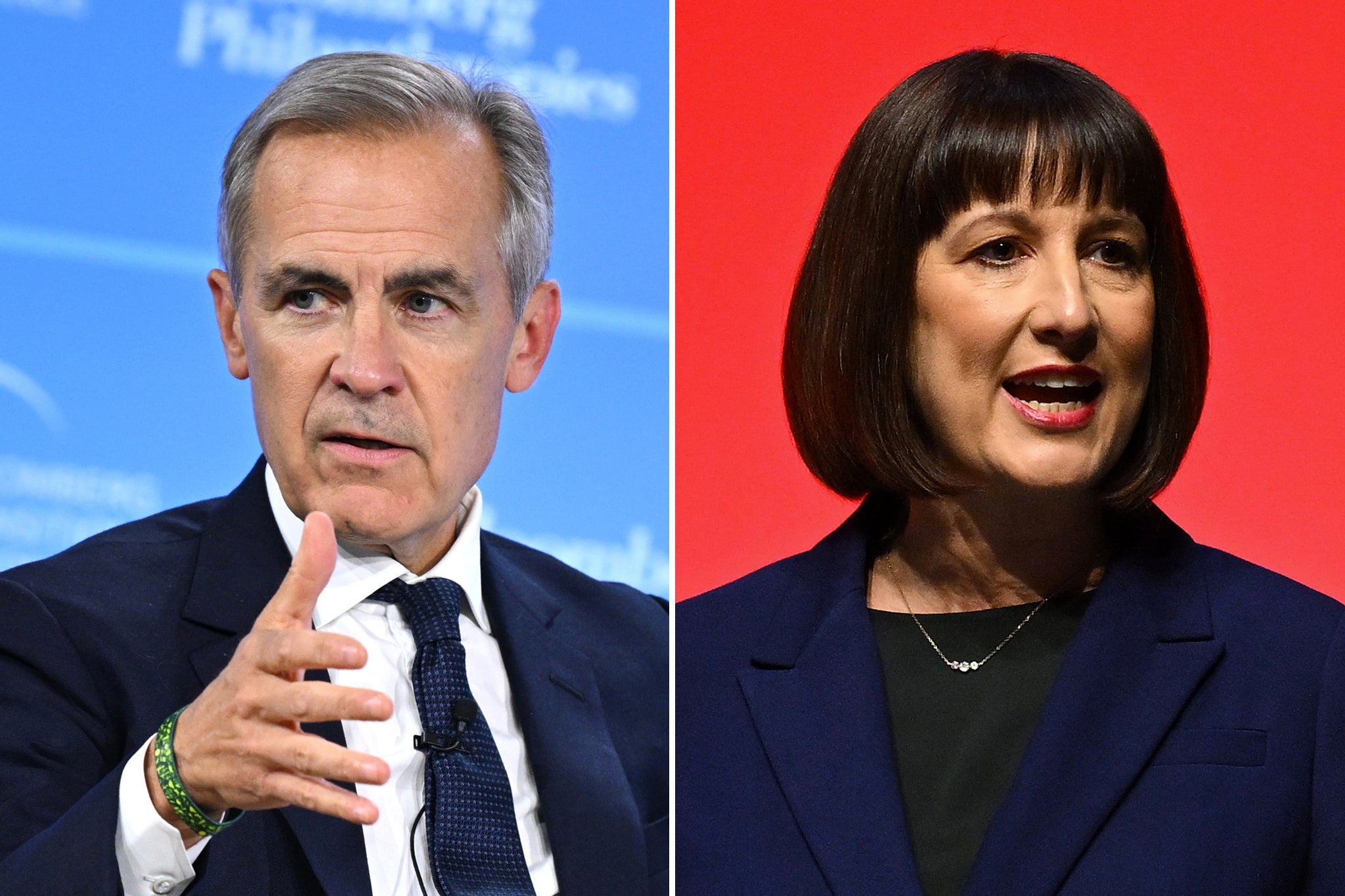What would Rachel Reeves as chancellor mean for the country – and your pocket?
The shadow chancellor is currently on course to be the first woman to take control of the nation’s finances – and has won the backing of former Bank of England governor Mark Carney. So, asks Sean O’Grady, what would she put in her first Budget, and how would that affect you?


In a confident speech, the shadow chancellor Rachel Reeves told the Labour conference that, “when we next meet, I intend to address this hall as Britain’s first female Chancellor of the Exchequer”.
Since her appointment by Keir Starmer in May 2021, she has become the de facto deputy leader of the party and enjoys Starmer’s confidence like no other of his senior colleagues. The feeling is mutual. Unlike so many of her recent predecessors, she has been creative in her role, which is especially difficult at a time when the public finances are so tight and economic growth so sluggish.
The time has come to wonder what a Reeves chancellorship would look like...
What’s going to be in her first Budget?
Unusually, for all the claims of Labour’s vagueness, we’ve actually got a fairly shrewd idea about what she’s set out because she’s either told us or dropped some hefty hints. The first budget is always crucial for an incoming administration, as a road map, a statement of intent, and an exercise in getting the trickier stuff done early. Reeves would, for example, immediately charge public schools VAT and business rates, and pump the money into state schools.
She would also tax buy-to-let landlords and people who receive substantial income from stocks and shares. She doesn’t appear as keen these days on hiking capital gains tax, and she’s ruled out a wealth tax. Some middle-class tax breaks might get trimmed, such as tax relief on private pensions. It’s also unclear whether she’d retain the multi-year freeze on personal tax thresholds introduced by Rishi Sunak – the largest stealth tax of all. But non-dom tax status would definitely go (and in truth, so might some of those globally footloose individuals, to more fiscally friendly locales).
So the fairly prosperous would pay more tax under Reeves and Starmer; the super-rich would avoid their predations, as ever; and the less well-off would be relatively untouched.
Is she going to set herself a fiscal framework?
Yes, and more than one. In her first conference speech two years ago, she pledged that a Labour government would “put in place fiscal rules that will bind the next Labour government to ensure we always spend wisely and keep debt under control”.
Labour would also sanction borrowing for investment in infrastructure; introduce a mechanism for suspending the fiscal targets if there is an economic shock; and look at public sector assets as well as liabilities, which would stop a government from selling assets in an effort to “massage public debt lower”.
Since then, Reeves has confirmed Labour’s policy of targeting a current budget surplus and a falling debt-to-GDP ratio, with the latter seemingly taking priority over investment plans (it’s not entirely clear). So they could borrow more for, say, a new version of HS2 or the green infrastructure plan, but – perhaps – only if and when the debt-to-national-income trend is heading lower. The sheer cost of servicing the UK national debt with interest rates rising is already imposing a straitjacket on the Treasury across the whole spectrum of public spending – in reality, honouring debt interest is actually the priority of every government.
In addition, Reeves will give the Office for Budget Responsibility new powers to audit budgets – to prevent anyone in future from “doing a Truss”.
Can we afford the ‘triple lock’ protecting the value of the state pension?
This is one of the biggest uncharted areas, for all parties. The rumour is that the Tories will tweak it and keep it, but that leaves Labour with the challenge of matching that. The fact that neither Reeves, nor Starmer, nor the shadow work and pensions secretary, Liz Kendall, has declared that the triple lock is safe suggests that it is in play, if not in jeopardy – and with it a substantial grey phalanx of voters determined to make it to the polling station. It may simply be that Labour doesn’t know what to do (no dishonour in that).

In fact, if Labour does win, it’s more likely that the wider social security budget will come under more scrutiny with Reeves and Kendall running things. The party has already accepted Tory cuts to child benefit, and more may follow. In what amounts to a barely camouflaged warning to her party that the welfare budget needs to be brought under control, Kendall declared: “Poverty is soaring. And the cost to the taxpayer is spiralling, too. Conference, Britain isn’t working. Over 2 million people shut out of the workplace because of sickness or disability want to work ... Our top priority will be ensuring everyone who can work, does.” In truth, that is not so very far distant from Jeremy Hunt...
What else isn’t she telling us?
Plenty. We don’t know what her growth target is. There was virtually nothing about budgets for schools, hospitals, defence, housing, international development, investment and much else, beyond a rubbery estimate of £28bn a year on the green infrastructure plan by the end of the parliament. Generally, Labour’s policy on virtually everything – HS2, Raac, doctors’ pay – is to say that they’ll have to look at the books if they win power. Which means they’ll carry on with the Conservative policy. As noted, the cost of servicing the debt and modest growth means that there won’t be much money for anything.
But isn’t higher growth the ‘defining mission’ of the next Labour government?
So they say, and Starmer has said that the growth rate will be boosted within months by easing planning rules. Reeves echoes this and seems determined to get dormant private investment plans underway by scrapping planning controls for onshore and offshore wind farms, labs, battery gigafactories and the like. Such a reform would make a difference, but Labour may be exaggerating the speed and size of the “planning effect”. A new “national wealth fund” will subsidise private sector investment that would otherwise be uneconomic, which doesn’t really attack the underlying causes of that.
There are more important factors, not least access to the EU single market, and the faster-growing, dynamic economies in the East. Inward migration too, skilled and unskilled, has hampered growth and pushed wage costs and inflation higher. Yet, as Reeves put it so bluntly, “globalisation, as we once knew it, is dead”.
Despite some upbeat talk about training, and optimistic noises about “making Brexit work”, Labour doesn’t appear to be ready to transform these barriers to growth: Reeves didn’t mention the European Union once, and there was a single passing reference to “Brexit without a plan”.
Yet, investment has flatlined since the EU referendum in 2016, and we’re beginning to experience “nothing works” syndrome. Whoever the next chancellor is, it’s still difficult to see where the private sector investment is going to come from to boost productivity, wages and jobs in the longer term. After four or five years of Reeves in No 11, will we feel better off?






Join our commenting forum
Join thought-provoking conversations, follow other Independent readers and see their replies
36Comments